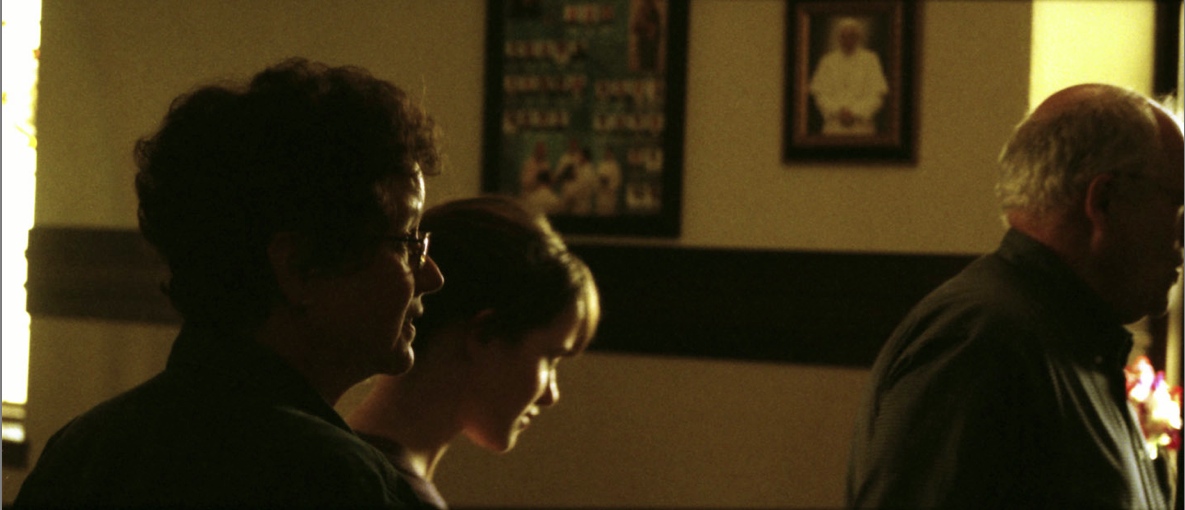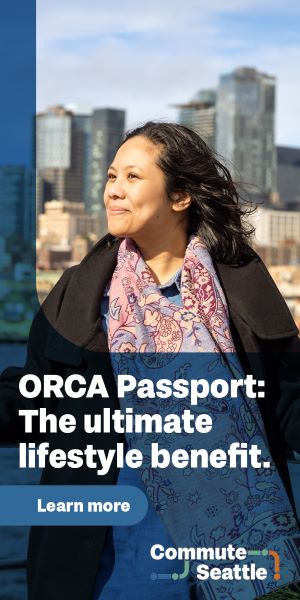“Hey, Bashi.”
He tells me I’m his favorite, the best. He asks if I remember him.
“Of course I remember you!” I was just about to ask after his young son when he beat me to the punch with–
“My son, he asks about you!”
“He asks about me? I was just about to wow, he remembers me! That’s so nice. Seems like a cool guy, smart guy. I remember he always knows all the street names.” I couldn’t stop grinning the first time this little kid got on and began quickly rattling off with, “the next stop is Holden after that is Othello after that Frontenac after that Holly then Graham then Kenny then….”
“Every single one,” Bashi laughs in reply. “He is genius!”
“Smart guy!”
“Yeah, he asks, ‘where is my bus driver?'”
“Yeah, I was gone for a while, working early morning on different routes. But I’m happy to be back here in the nighttime!”
“And I say ‘your friend, he works at night!'”
“Yes!”
“You were doing school?”
“Yes.”
“Let me give you some advice.” He started telling me how good I am at my job. Curiously, this is the only part of the conversation I couldn’t remember well enough in the minutes afterwards to write down with accuracy; I think I block rhapsodic praise out sometimes. Too much to let into the head! I recall instead the small glimmer of metallic tooth fittings in his smile, glinting in response to the dim fluorescents.
“Some drivers make it really hard,” he continued. “You make it easy.”
“I like the people!”
Bashi formerly worked in Metro Customer Service. He’s extremely knowledgeable on the rules, the official language, the complaint system, and so on. He’s aware of the type of driver who tends to get a disproportionate amount of complaints, but he’s also cognizant of the sort of passenger who complains often. Bashi has a point he’s working toward, but he’s circling around it for the moment.
I’m thinking about liking the people and making it easy. I say, “when I was on the Eastside–”
He beats me to the punch again, correctly anticipating my thought: “they are totally different over there! Did you know, I used to work for Metro.”
“Yes, I remember you said customer service,”
“They have a different attitude.”
“Attitude, yes!”
“They complain!” he exclaims, and we laugh. It’s true. The societal norms are different enough to warrant contrasting results on either side of the lake: in South Seattle, unhappy passengers will simply curse you out in person, offering a ‘verbal complaint,’ as it were. In the ‘burbs, they’ll remain silent for now but strike hard later, using official channels. I’ll refrain from using terms like passive-aggressive or schadenfreude to describe the behavior of this latter category.
“One little thing wrong, and they type up a big long letter!”
“It’s so true,” I say. “There’s a different feeling sometimes too, the attitude, where they’re looking down on me. I am the service worker, they are the rich, whatever, I don’t know anything…”
“They are bothered very easily.”
“The 7 is the best route. Here, they just get angry and yell at you right here.” I can recall more than once watching drivers on Eastside routes abusing their riders in ways my 7 passengers simply wouldn’t tolerate. Would they file little electronic complaints? No, they would physically intervene.
Bashi: “You know what I’m talking about!”
“I drove on the Eastside for two years.”
“They don’t say nothing at the time, but later when they go home to the computer… still they don’t say anything, just a lot of big words. Vocabulary. They say ‘thank you,’ then on their expensive phone they complain to your boss.”
“It’s more simple here, more clear. Here they just say the F word.”
“More simple, yeah. Here they say ‘fuck you.’ ‘Shut the fuck up.’ Then they forget about it!”
“Bashi, I’m glad you got on my bus!”
This conversation is an older story which happened some time ago, and had I posted it then it would have ended differently than it will now. I’ve been mulling over the ideas discussed above since. Something’s been rubbing me the wrong way. What didn’t feel right?
Our own attitude, his and mine, that’s what. The gleeful criticism that of others.
A few years ago I would have been entirely on board with this skewering of the passive-aggressive upper class. That’s really what we were talking about, not geographical disparities but classist ones. The story would have ended with something along the lines of Bashi’s clear-eyed discernment cutting through the gauze of classism masquerading as educated grievances. His remarks aboveare certainly accurate, but I feel a bit differently now. I agree with Bashi’s comments, but not their sentiment, nor especially their all-inclusiveness.
The fact of the matter is, I know a few too many wealthy people of impeccable quality of character, who because of their experiences or observation are unimpeachable in their compassion, perceptiveness, and lack of entitlement. These same folks might be the first to point out that their perspectives are pretty unusual within their status group (what is it about cloistered lifestyles that breed apathy so?), but regardless, I cannot comfortably make generalizations which cast entire swaths as caricatures, any more than I cannot tolerate the same being done against the homeless and low-income whom I know so well.
Quebecois filmmaking wunderkind Xavier Dolan was speaking recently about some editing decisions he made during the completion of his 2012 magnum opus, Laurence Anyways. The film is a three-hour intimate epic following ten years in the life of a man who becomes a woman, and the enormous havoc that wreaks on his relationship with his girlfriend. Among other things, Dolan endeavored the film to be a piece which didn’t judge its marginalized protagonists, but simply regarded them. He shot a scene which ridiculed the snobby elite who so disapproved of the film’s central union, but couldn’t in good conscience include it in the final picture. Why?
If Dolan’s aim, he said, was to celebrate the uncelebrated without judging them, it would be hypocritical for him to ask the audience to simultaneously judge others whose views he found backward. To be ideologically sound, the film needed to espouse a worldview in which no group is maligned. The solution is not to snark the snarkers, as it were, and return the same contempt we ourselves can hardly stand; but rather to venture out on higher roads. Trust others to be malleable, capable of expanding their views, whether or not they are. Nothing’s more disappointing then being the receiver of an unbelieving gaze, the stare which sees nothing in you beyond your presentation.
Stirrings of these thoughts were galvanized out of latency one morning this past summer while driving a trip on the 3, inbound from Queen Anne. At each zone, silent commuters came aboard. Today they were particularly unresponsive, and I was reminded of my days on the 545, where lack of interaction is chronic. I was thinking of Tom Wolfe’s description of maids who feel like furniture, taken for granted and ignored into nothingness until they do something wrong. At Prospect Street a gentleman in a crisp coat tapped his Orca card glancingly, such that it did not scan. He tried again.
“Come on in, don’t worry about it.” That sounds fine in print, but I said it in a pejorative tone. Why did I do that? I added, “We’ll get it next time,” which I never say, especially never in this clipped, grossly unacceptable condescending attitude I was wearing. I was grouping him as one of those, another one of them, and falling into the trap of returning the disregard I assumed he had for me.
Isn’t them just about the worst word in the world?
He looked up and noticed me for the first time.
“Are you Nathan?”
“I am!”
“I love the blog. I really love the blog. I love the attitude of it.”
“Thank you! So much!”
I felt nonplussed, and utterly shamed. I spent the rest of the ride reeling with chagrin, reflecting. This was the best moment of the entire week. His bearing in the face of mine was the stronger, and it was exactly the correction I needed. I greeted the remaining Queen Anne residents with what he had reminded me: that, like my more boisterous riders on the other side of town, we all have more in common than we don’t.
Thank you, friend, for opening my eyes a bit further.
Nathan Vass is an artist, filmmaker, photographer, and author by day, and a Metro bus driver by night, where his community-building work has been showcased on TED, NPR, The Seattle Times, KING 5 and landed him a spot on Seattle Magazine’s 2018 list of the 35 Most Influential People in Seattle. He has shown in over forty photography shows is also the director of nine films, six of which have shown at festivals, and one of which premiered at Henry Art Gallery. His book, The Lines That Make Us, is a Seattle bestseller and 2019 WA State Book Awards finalist.




